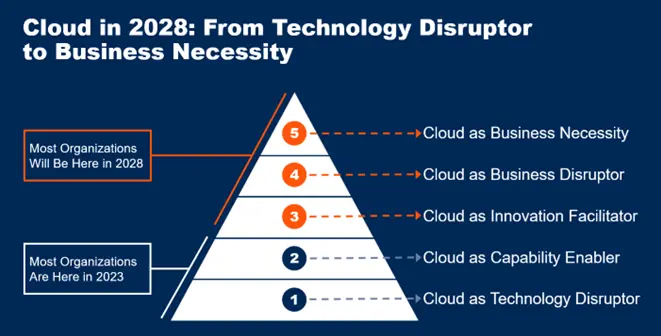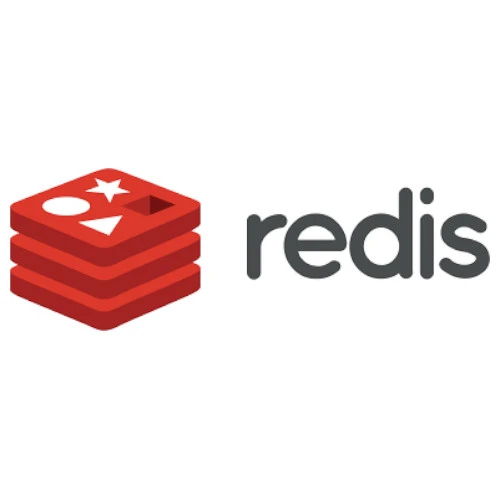The Best Cloud Hosting Service Providers
Reports confirm that by 2026, the cloud hosting market will be valued at USD 1868.6 billion by 2025. Cloud hosting for publishers is the ability to host websites and applications on virtual servers that are created, managed, and maintained by a cloud computing provider. The hosting pool computes resources from a network of servers, both virtual and physical. Instead of relying on a single physical server, cloud hosting uses a network of servers that are interconnected and work together to provide scalable and flexible hosting solutions.
Cloud hosting offers the option to scale up or down as needed based on the demands of the website or application. Publishers have access to computing resources on-demand without having to invest in and manage their own physical servers. Cloud hosting for publishers is typically provided as a pay-as-you-go service, where users only pay for the resources they actually use.

Overview of Cloud Hosting
Cloud hosting works via the process of virtualization. A virtual layer is laid on the server where both content and data are stored. These layers can be copied on other servers on the cloud computing network, which is spread across the world.
Benefits of Cloud Hosting Service Providers
Some of the key features and benefits of cloud hosting for publishers include:
- Easily scalable: With cloud hosting, publishers have the ability to easily scale their resources up or down in accordance with the traffic and resource requirements of their websites or applications. This allows websites to handle traffic spikes during peak times without experiencing performance issues.
- Flexibility and customization: Publishers have the flexibility to choose the computing resources they need, such as CPU, RAM, and storage, adjust them as needed and customize their hosting environment to meet their specific requirements.
- Highly reliable: Cloud hosting generally uses redundant infrastructure and multiple servers, which reduces the risk of website downtime due to hardware failures or server issues and ensures high availability and reliability for websites and applications.
- High performance: Publishers are often offered features such as content delivery networks (CDNs) and caching, which can help improve website loading times and overall performance, leading to better user experiences and higher engagement.
- Global availability: The providers generally have multiple data centers located in different regions around the world, which allows publishers to choose a server location that is closest to their target audience and helps improve website performance and load times for users in different geographic locations.
- High security: Cloud hosting providers typically offer robust security measures, such as firewalls, DDoS protection, data encryption, and regular security updates, to protect websites and applications from potential security threats.
- Backup and disaster recovery: Cloud hosting often includes automated backups and disaster recovery options, which can help publishers protect their website data and ensure business continuity in case of data loss or server failures.
With cloud hosting, websites, and application operators can add or remove resources as and when required. This is inclusive of more RAM, storage space, or support services like security or data storage. Cloud hosting comes with more reliability and flexibility, and lower cost. It also provides solid data backup and disaster recovery.
OVHcloud provides cloud services that enable companies and individuals to build their own IT infrastructures. With a modern and reliable infrastructure, OVH can position itself as the most customer-oriented cloud provider. Ovhcloud offers many services that other cloud providers do not. It is the leading cloud provider offering a wide range of services, from bare metal servers to virtual private servers. OVHcloud is a fully managed cloud service platform that provides businesses of all sizes access to the world's most advanced cloud technologies.
Redis is an open source in-memory database used for real time data storage. By using Redis to store information, you can reduce the load on your application's database or scale it up (or both) without changing your code at all. Take your application's performance to the next level by utilizing Redis Enterprise's advanced features.
Hosting your website is the first step towards turning it into a successful online business, and choosing a web hosting provider is crucial to your success. MilesWeb provides reliable, fast, secure and affordable web hosting plans that can help you bring your website live on the internet in no time. MilesWeb is India’s first cloud hosting company offering dedicated servers at affordable prices. The team of engineers makes sure that you have all the features that you need for your personal or business website.
The scalable cloud hosting solution by Hetzner comes with the option of both Dedicated vCPU and Shared vCPU to offer solutions that truly fit your needs. It helps you scale your applications with ease, establish connections and secure your infrastructure.
DigitalOcean’s cloud hosting solution has been built to render to the unique needs of startups and SMBs. Their products are simple at core with predictability pricing and leading price-to-performance ratio.The reliable platform offers excellent customer experience.
Platform.sh offers scalable cloud hosting solutions with high performance, robust security, and seamless deployment tools. Ideal for developers and enterprises seeking flexible, reliable cloud infrastructure for web applications and complex sites.
TransIP's Cloud Hosting solution brings the concept of Public Cloud which is a scalable solution, where you will be completely in control. It provides the liberty to add as many servers and load balancers as you wish to your network. The biggest advantage remains that you have to pay just for what you use.
Network Solutions Cloud Hosting offers scalable, high-performance hosting with flexible resources, ensuring fast speeds, enhanced security, and reliable uptime. It's ideal for businesses looking for a cloud-based solution to support growing websites and applications.
Interested in building fast, secure websites without the headache of backend engineering? Gatsby is a frontend for the headless web that allows you to build amazing websites by using React, ES6 and Material Design. Today, over half of all web browsing traffic comes from mobile devices. Having a fast website will make your business more attractive to potential customers and increase your revenue. With Gatsby you can easily create a website that loads quickly even on older hardware and offers great experiences by default.
Imagine a world where every company has its own website. And each of those websites are hosted on infrastructure it can control, without the need for any special tools or assistance. That world exists today with Amazeeio. Amaze.io is a rapid development platform that makes it easy for developers to create and launch APIs. Migrating your app to any cloud or platform is hard. Amazeeio is here to help make it easier by providing a multi-cloud, highly available CDN solution built specifically for modern uses.
A report has shown that migration to cloud services has successfully helped businesses in unlocking additional revenue streams that result in a boost in profit growth by around 11.2% year over year. However, to be able to realize such financial gains, at least 60% of your systems must be in the cloud.

How to Choose the Best Cloud Hosting Service Providers?
Finding a good cloud hosting service can be slightly difficult. Here are some things to consider when you are selecting a cloud hosting service for your business:
- Offers high performance: Find a provider that offers high-performance computing resources, including fast CPUs, ample RAM, and solid-state drives (SSDs) for storage. This will help ensure that your website or application loads quickly and performs well, providing a smooth user experience.
- Must be scalable: Choose a cloud hosting provider that offers easy scalability, allowing you to increase or decrease your computing resources as needed to accommodate traffic spikes or changes in resource requirements. This will ensure that your website can handle fluctuations in traffic without experiencing performance issues.
- Is known to be reliable: Consider the reliability and uptime track record of the cloud hosting provider. Look for providers that offer redundant infrastructure, multiple data centers in different geographic locations, and automatic failover mechanisms to minimize the risk of downtime.
- Is cost-effective: Compare pricing plans among different cloud hosting providers and consider the cost-effectiveness of the plans based on your resource requirements and budget. Look for providers that offer transparent pricing with no hidden fees and provide flexibility in terms of resource allocation and billing.
- Offers advanced features: Evaluate the features offered by the cloud hosting provider, such as content delivery networks (CDNs), caching, backups, and security measures. Look for providers that offer advanced features that align with your specific needs, such as developer tools, database management, and integrations with content management systems (CMS).
- Safety measures: Consider the security measures provided by the cloud hosting provider, such as firewalls, DDoS protection, SSL certificates, and regular security updates. Ensure that the provider follows best practices for data security and compliance with industry standards.
- Support: Evaluate the level of customer support provided by the cloud hosting provider, including response times, support channels, and availability. Look for providers that offer 24/7 customer support, a knowledge base, and a community forum for additional resources and assistance.
- Reputation and reviews: Research the reputation and customer reviews of the cloud hosting provider. Look for providers with a proven track record of reliability, performance, and customer satisfaction.
You must carefully consider the abovementioned factors. Other than that, you must also run strong research to make sure that the service aligns with your needs and requirements and do justice to your website or application.
If you are struggling to find the best cloud hosting service provider that fits your business needs, Publisher Growth can help. We have access to the best video slider ad networks for publishers. Once you sign up, we will examine your content and notify you once we have found the perfect ad network for you to partner with.
Sign up with Publisher Growth here.
Cloud Hosting FAQs
Our Editors’ Pick:
Browse these amazing publisher monetization tools handpicked by our team of editors






-1693662658.webp)








 (1).webp)


